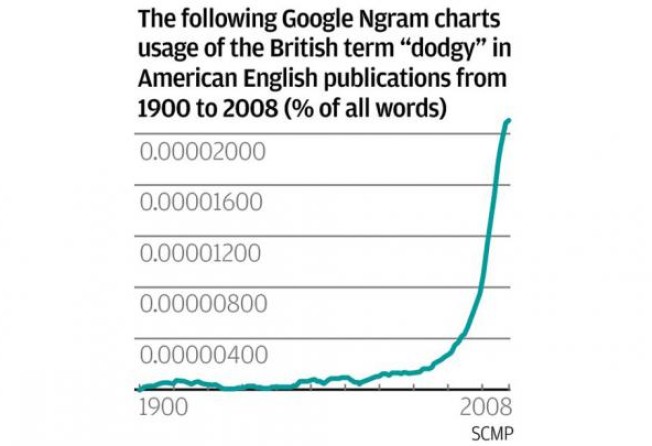
America embraces English English
Crikey - aided by the telly, fashion and the internet, a flood of Britishisms makes itself heard in the home of the Americanism

Mitt Romney is not the "bumbling toff" he's made out to be, wrote Daniel Gross, an American journalist, in a recent Daily Beast article. The latest iPad is a "lovely piece of kit," in the words of John Scalzi, an American science-fiction author writing in his blog, Whatever. The Chicago Bulls were mired in uncertainty less than a "fortnight" after their star player Derrick Rose went down with a knee injury, according to an article in The Daily Herald, a suburban Chicago newspaper, last spring.
Some call it Anglocreep. Some call it annoying. Snippets of British vernacular — "cheers" as a greeting, "brilliant" as an affirmative, "loo" as a bathroom — that were until recently as rare as steak and kidney pie on American shores are cropping up in the daily speech of Americans (particularly, New Yorkers) of the taste-making set who often have no more direct tie to Britain than an affinity for the TV series Downton Abbey.
This star-spangled burst of Anglophonia has "established itself as this linguistic phenomenon that shows no sign of abating", said Ben Yagoda, a professor of English at the University of Delaware, who last year started "Not One-Off Britishisms", a repository of such verbal non-native species, like those above, culled from the American media.
"The 21st century 'chattering classes' - which in itself is a Britishism - are the most significant perpetrators of this trend," he added.
Arguably, the distance between Britain and the United States is as small as it has ever been. In an age of BBC livestreams and borderless websites, Americans track British gossip sites, absorb the Queen's English through televised imports like Ramsay's Kitchen Nightmares and Doctor Who, and take in newspapers like The Guardian.
Predictably, people who traffic in trends for a living seem most susceptible.
"Fashion people live to sound British, the same way they over-pronounce French and Italian words because of those country's fashion weeks," said Peter Davis, the American-born editor of Scene, a New York society magazine. In an industry where British-born editors like Anna Wintour, Glenda Bailey and Joanna Coles set the tone, ambitious underlings "use Brit-speak to sound, well, more 'posh'".
"I have heard people who grew up far from London uttering that a runway collection was 'brilliant' or just 'bril'," he added.
Some phrases that were rarely heard five or 10 years ago suddenly seem ubiquitous. The absolving term "no worries" - a keystone of the Australian patois, but British in origin, according to Yagoda - has all but replaced "no problem" for smart-set Americans under 40.
This outburst of Brit-envy has not gone unnoticed in Britain. The Guardian, The Telegraph, The Sun and the BBC website have all weighed in in recent weeks to poke fun at such linguistic shoplifting.
The articles cited examples from Not One-Off Britishisms, where Yagoda often charts the popularity of terms using Google's Ngram Viewer, which tracks the appearance of words or phrases year by year in millions of books. When rendered in graph form, certain British phrases, like "have a look" instead of the standard American "take a look", seem like the Nasdaq charts for a hot internet stock.
Is it pompous, or just further evidence of the endless evolution of American English?
It depends, to a degree, on whether a suitable American synonym exists, said Jesse Sheidlower, the American-born editor at large of the Oxford English Dictionary. For example, "'twee' is a useful term, because there really is no direct American equivalent," Sheidlower said. "It describes things that are often associated with Britishness, like Laura Ashley dresses or Park Slope baby names like Primrose or Harmony. But the word itself doesn't scream of Britishness."